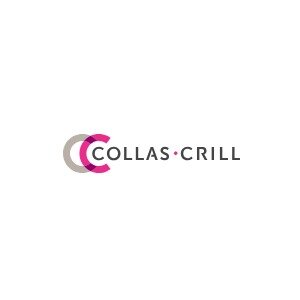Best Bankruptcy Lawyers in British Virgin Islands
Share your needs with us, get contacted by law firms.
Free. Takes 2 min.
Or refine your search by selecting a city:
List of the best lawyers in British Virgin Islands
About Bankruptcy Law in British Virgin Islands
Bankruptcy law in the British Virgin Islands is a legal framework designed to assist individuals and businesses in financial distress. It provides a structured means to either discharge or reorganize debts under court supervision, allowing for an orderly payment of creditors. The process is intended to give a fresh start to honest debtors who are overwhelmed by their financial obligations. BVI's bankruptcy law is primarily governed by the Bankruptcy Act, which provides the guidelines and procedures for filing for bankruptcy.
Why You May Need a Lawyer
There are several situations where seeking legal advice from a lawyer skilled in bankruptcy law might be beneficial, including:
- If you're unable to manage your debts and are considering bankruptcy as a relief.
- Understanding the implications of bankruptcy on your assets and future credit rating.
- Negotiating with creditors who might be hostile or unwilling to reach a settlement.
- Filing the necessary paperwork with the court, ensuring it's properly completed and submitted.
- Determining if bankruptcy is the most suitable option, or if other alternatives like debt consolidation might be preferable.
Local Laws Overview
The Bankruptcy Act and the Insolvency Act are the primary legislative frameworks governing bankruptcy proceedings in the British Virgin Islands. Key aspects include:
- The distinction between personal bankruptcy and corporate insolvency.
- The role of licensed insolvency practitioners who oversee the bankruptcy process.
- Provisions for asset protection during bankruptcy, including exempt assets.
- The process for creditors to file claims and the order of repayment.
- Rehabilitation and discharge processes, and how these affect both individual and corporate entities.
Frequently Asked Questions
What is the difference between insolvency and bankruptcy in BVI?
In the BVI, insolvency generally relates to corporate financial distress, while bankruptcy pertains specifically to individuals. Both processes aim to resolve issues related to debt incapacity.
Can I keep any assets after filing for bankruptcy?
Yes, certain assets are exempt from being taken by creditors. Exemptions can vary, so it's crucial to understand which assets are protected under BVI law.
How long does the bankruptcy process take?
The duration can vary based on individual circumstances, but most bankruptcies in BVI are resolved within several months to a year.
Will bankruptcy affect my employment?
While bankruptcy itself does not terminate employment, it may affect certain professions, especially where financial responsibility is a component of the job duties.
Are there alternatives to filing for bankruptcy?
Yes, alternatives include debt restructuring, negotiation with creditors for a payment plan, and other financial management solutions.
How does bankruptcy affect my credit rating?
Bankruptcy will negatively impact your credit rating, making it difficult to obtain new credit for a period following the discharge.
Can I declare bankruptcy more than once?
Yes, but there are specific restrictions and time limits between filings. Repeated bankruptcy can carry heavier legal and financial consequences.
What happens to my income during bankruptcy?
Your income may be partially used to repay your creditors depending on your situation. It's important to discuss this with a bankruptcy lawyer.
Can bankruptcy discharge all types of debts?
No, some debts such as student loans, certain taxes, and child support obligations may not be discharged under BVI law.
Who oversees the bankruptcy process?
The bankruptcy process in the BVI is overseen by licensed insolvency practitioners, who are regulated professionals responsible for managing the process.
Additional Resources
You may find the following resources helpful:
- The Financial Services Commission (FSC) of the BVI: Responsible for the regulation and supervision of financial services.
- BVI Insolvency Practitioners Association: A professional body that can provide information about qualified insolvency practitioners.
- Legal aid clinics or free legal advice centers may also provide initial guidance on bankruptcy matters.
Next Steps
If you are contemplating bankruptcy, here are some steps you can follow:
- Consult with a licensed insolvency practitioner who can guide you through your options and the process of filing for bankruptcy.
- Gather all relevant financial documents, including assets, liabilities, income, and expenses.
- Consider alternative solutions by consulting financial advisors or debt counselors.
- Understand the potential impact of bankruptcy on your life and plan accordingly for future financial health.
By taking these steps, you can ensure informed decisions and better manage the financial and legal challenges you may face.
Lawzana helps you find the best lawyers and law firms in British Virgin Islands through a curated and pre-screened list of qualified legal professionals. Our platform offers rankings and detailed profiles of attorneys and law firms, allowing you to compare based on practice areas, including Bankruptcy, experience, and client feedback.
Each profile includes a description of the firm's areas of practice, client reviews, team members and partners, year of establishment, spoken languages, office locations, contact information, social media presence, and any published articles or resources. Most firms on our platform speak English and are experienced in both local and international legal matters.
Get a quote from top-rated law firms in British Virgin Islands — quickly, securely, and without unnecessary hassle.
Disclaimer:
The information provided on this page is for general informational purposes only and does not constitute legal advice. While we strive to ensure the accuracy and relevance of the content, legal information may change over time, and interpretations of the law can vary. You should always consult with a qualified legal professional for advice specific to your situation.
We disclaim all liability for actions taken or not taken based on the content of this page. If you believe any information is incorrect or outdated, please contact us, and we will review and update it where appropriate.
Browse bankruptcy law firms by city in British Virgin Islands
Refine your search by selecting a city.












